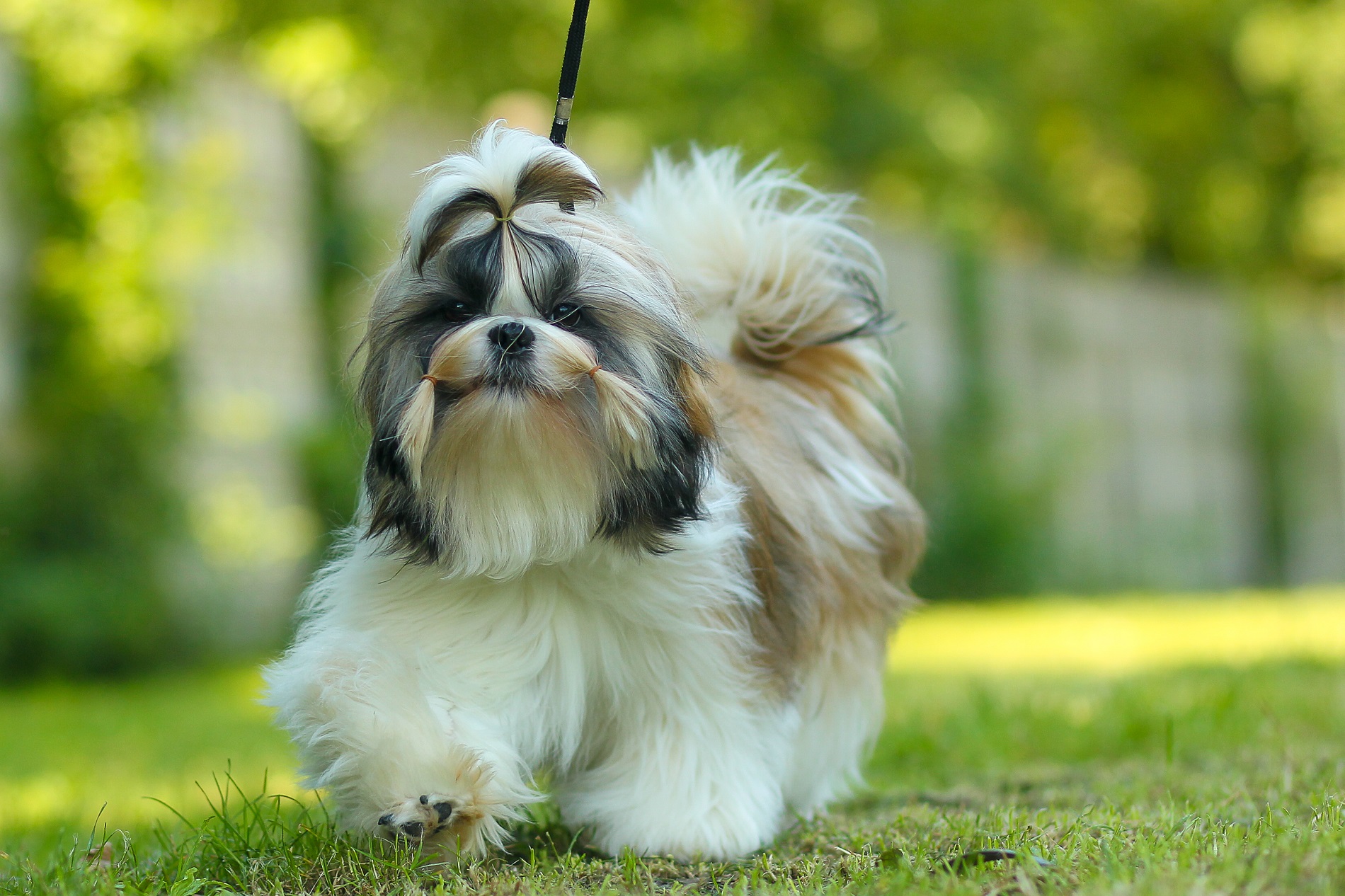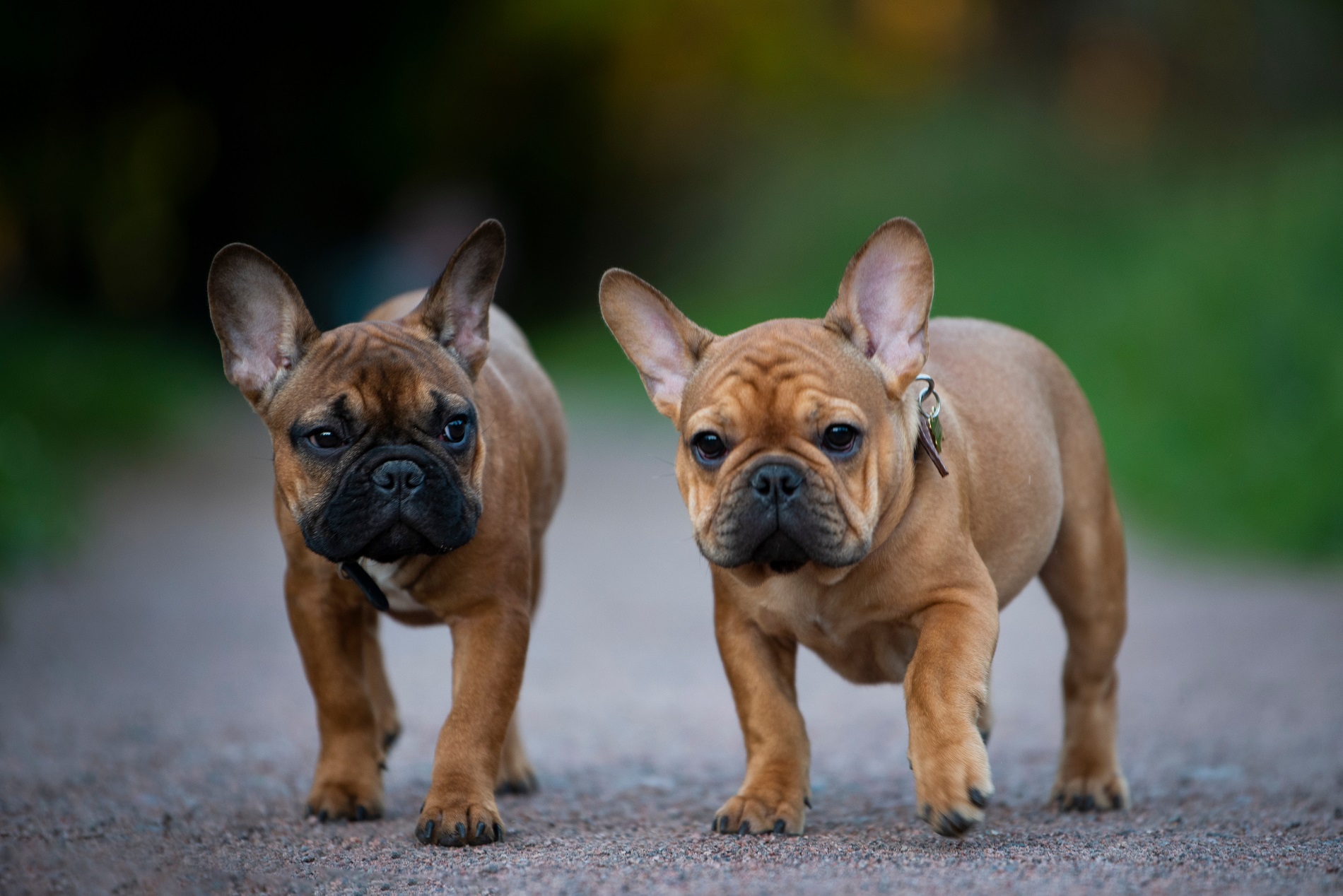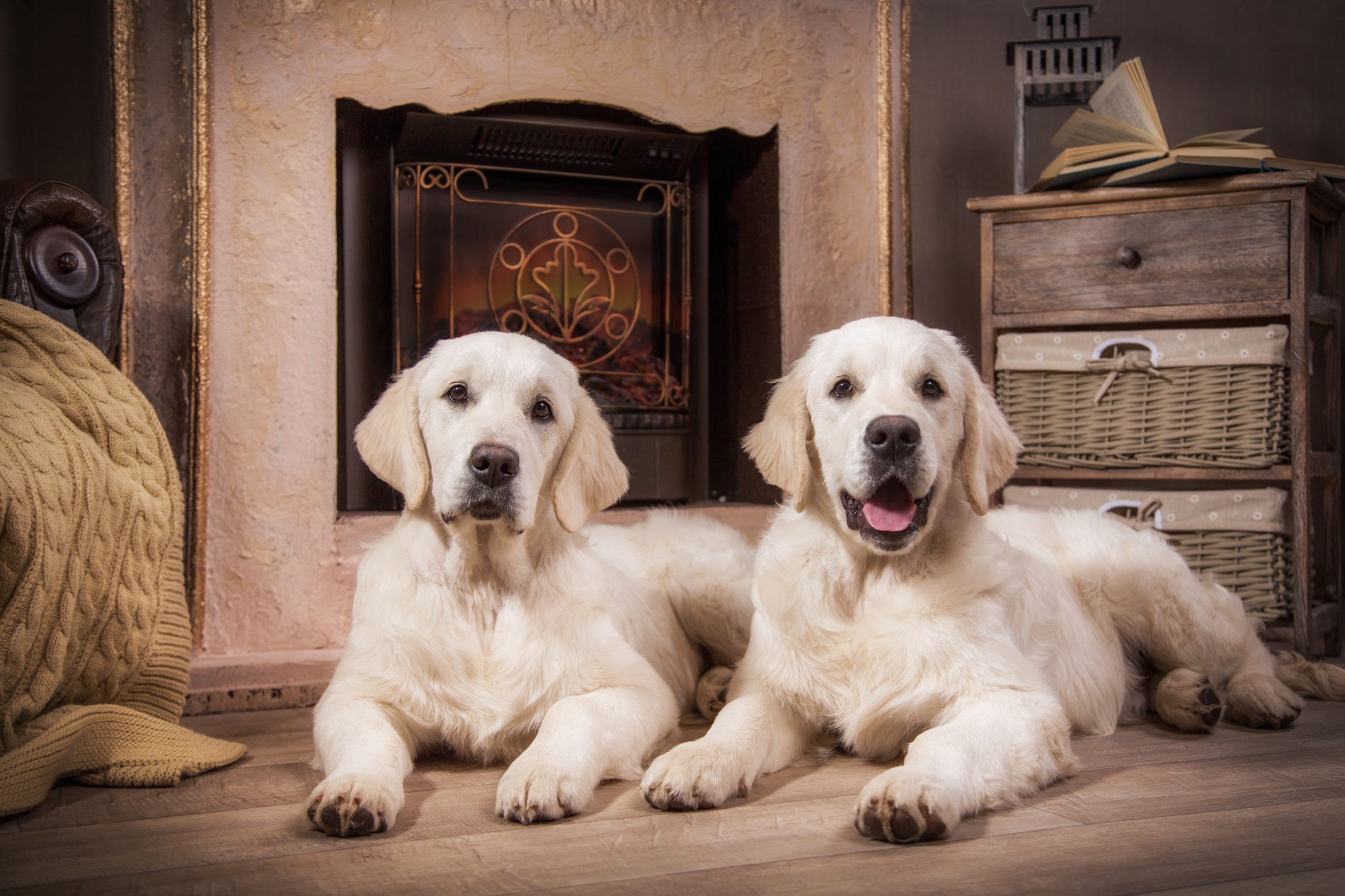These pint-sized pooches are known for their luxurious coats, deep dark eyes, and cute, flat muzzles. For more than a thousand years, the Shih Tzu dog breed has been an affectionate lap and loyal companion dog, and today they’re even top contenders in agility competitions. The name Shih Tzu translates from Mandarin to “Little Lion,” but these pups aren’t exactly ferocious—in fact, they’re one of the friendliest and most outgoing breeds around.
Shih Tzu Average Size and Life Expectancy
- Height: 9-10.5 inches
- Weight: 9-16 pounds
- Life Span: 10-18 years
Shih Tzu Characteristics and Traits
Friendliness
Affectionate with family 5/5
As one of the friendliest dog breeds, Shih Tzus love people, especially their everyday caretakers. Expect your pup to follow you around the house, beg for scratches and belly rubs, and generally show you a whole lot of love.
Good with other dogs 4/5
While some affectionate dogs might want to claim all the attention of their owners, Shih Tzus are happy to share the love with other dogs. These outgoing pups are known for making fast friends with other four-legged creatures in their homes.
Good with children 5/5
Few dogs take to kids better than Shih Tzus. Thanks to their relaxed demeanor, they can handle the high-energy experience of young children any day of the week. Just be sure to let any children know the proper way to play and handle a dog. Too much roughhousing can sour the mood of even the most docile Shih Tzu.
Good with strangers 4/5
Shih Tzus are almost always ready to make friends. Whether you’re inviting someone to your home for the first time or chatting with a stranger on your walk, your pup will be eager to make their acquaintance.
Adaptability
Adapts well to apartment living 5/5
Lapdogs through and through, Shih Tzus once literally sat on the laps of ancient emperors and lounged around the palace grounds. Shih Tzu size, on average, falls below 16 pounds, which means your home doesn’t need to be opulent for your pup to be perfectly comfy.
Good for Novice Owners 5/5
A friendly disposition, small size, and low stimulation threshold means nearly anyone can give a Shih Tzu dog a happy home. You don’t need any prior experience—just a big heart to be a Shih Tzu owner.
Sensitivity level 3/5
Highly curious but not easily spooked, the Shih Tzu personality is typically calm, even in highly stimulating environments. If your pup is looking a little overwhelmed in a social situation, give them a few minutes to cool off. They’ll be back to their spunky self in no time.
Tolerates being alone 3/5
Shih Tzus are content to lay around, nap, and relax when their owners aren’t around, though this affectionate toy breed shouldn’t go too long without the companionship of their favorite human. If your pooch has another furry friend to hang out with, they may last even longer before feeling lonely or restless.
Tolerates cold weather 2/5
Shih Tzus hail from a cold climate and can handle the cold better than they can handle the heat. However, they still won’t fare too well at temperatures below 45°F due to their small size, especially if you trim their long coats. For longer walks in the cold, consider doubling up with a puppy jacket or sweater.
Tolerates hot weather 1/5
Overheating is a big risk to Shih Tzus. Their double coat traps heat, making sweltering days almost unbearable, and their flattened noses can cause breathing difficulties. Be sure to keep your pup hydrated, and consider taking your Shih Tzu to the groomer for a summer haircut when the weather turns warm.
Health and Grooming Needs
Shedding level 2/5
Shih Tzus sport a thick and lustrous coat, but they’re not known to shed excessively. Shedding is most noticeable when washing and grooming your Shih Tzu puppy.
Coat grooming frequency 4/5
To keep your Shih Tzu looking and feeling its best, regular grooming is required. Daily brushings, frequent baths, and trips to the groomer are all useful to maintain your Shih Tzus good looks.
Drooling level 1/5
Shih Tzus typically keep their saliva to themselves. Unless they’re drooling over their bowl or giving you a big wet kiss, you can expect minimal drool from this adorable dog breed.
Coat type/length 3/5
Few qualities are more iconic than the Shih Tzu’s soft, flowing double coat. With a short inner layer and a long outer layer, these coats come in a variety of colors (from solid black to white and gold) and are often decorated with eye-catching markings that make every pup one of a kind.
General health 3/5
A well-cared-for Shih Tzu can live a happy life well into its teen years. The most common health issues for this adorable dog breed are eye, dental, and breathing issues.
Potential for weight gain 4/5
These little pups can have big appetites. Additionally, because they’re more than happy to laze around the house, they may not always exercise as much as they need. Portion control and daily activity are the best ways to prevent your Shih Tzu from developing a weight problem.
Size 1/5
Standing less than a foot tall, these dogs are tiny enough to fit in a tote bag. Shih Tzus are definitely on the small end of the dog breed spectrum.
Trainability
Easy to train 3/5
Shih Tzus are eager to please their owners during training, but they’re not always eager to work. Plenty of treats, verbal affirmations, and consistent practices can help your pup during training.
Intelligence 4/5
Shih Tzus may be too smart for their own good. Oftentimes, they know precisely how to charm their owners into giving them what they want. With high emotional intelligence, you might be consistently surprised by how smart this breed is.
Prey drive 2/5
Most Shih Tzus would prefer a soft pillow over a thrilling squirrel chase. Your little dog may surprise you from time to time with their fascination with potential prey, but Shih Tzus usually have little to no interest in following their predatory instincts.
Tendency to Bark/Howl 2/5
This breed is typically quiet unless vying for the attention of its owner. You may hear the occasional whine for your Shih Tzu, but don’t expect many vocalizations in general.
Wanderlust potential 2/5
Shih Tzus typically know that they’re living the good life indoors, and are highly unlikely to run off. These dogs are seriously domesticated and might even ignore an open door in favor of a spot on your couch.
Physical Needs
Energy level 2/5
Undemanding and easygoing, Shih Tzus are fairly low-energy dogs. Of course, their calm nature doesn’t inhibit them from showing plenty of affection to their owners.
Intensity 3/5
Short playful bursts may be most Shih Tzus’ preference. They’re not going to be tearing up the streets on an hour-long walk, but they might be extra giddy when you walk in the door.
Exercise needs 2/5
A short walk is enough to tucker out an adult Shih Tzu for the rest of the day. In fact, you may be more concerned about overexerting your Shih Tzu than underserving their exercise needs.
Playfulness 3/5
Shih Tzus are agreeable little pups. If you’re in the mood to play, they’re game. If you’re looking for a quiet night on the couch, they’re more than happy to keep you company.
Mental stimulation 3/5
A few minutes of mental stimulation every day can keep your Shih Tzu’s temperament happy and balanced. Your pup might appreciate a short game of fetch or even an exciting food puzzle.
More About Shih Tzu
Many are drawn in by Shih Tzu’s enigmatic good looks. Part teddy bear, part lion, all shrunk down to a pocket-sized pup, Shih Tzus are instantly recognizable. Their pillowy soft double coat can be styled in a variety of ways, and owners opt for stand-out hairdos, ranging from top knots to fringed bangs.
Moments after meeting a Shih Tzu, you can expect to have already made a friend. Despite the occasional “hello” barking, it doesn’t take much time for a Shih Tzu to warm up to new people (and animals). They’re real charmers when they want something to go their way, so don’t be surprised if you find yourself catering to their every whim—they’re just that convincing.
As members of a toy dog breed, Shih Tzus are perfectly happy in smaller apartments or more spacious homes, so long as their loving owner is nearby. Sometimes described as Chrysanthemum Dog because of their unique facial hair, Shih Tzus are a perfect starter pet for first-time dog owners. While their coats demand regular grooming and bathing, just about every other aspect of caring for a Shih Tzu is relatively easy. Whether you take a pleasant stroll around the block or spend some quality time indoors, your Shih Tzu will always be happy to be in your presence.
Shih Tzu History
Dating back to the Ming Dynasty, Shih Tzus are native to Tibet, where they were likely bred from Pekingese and Lhasa Apso dogs. Shih Tzus were prized and protected by Chinese nobles, remaining rare and hidden away behind the palace walls for centuries.
Shih Tzu history also tells us that these animals held an important place in ancient Chinese culture and were integral to Buddist mythology. You’ll find Shih Tzus playing a central role in various Buddist stories and legends. In addition, idols and statues were carved to represent the fierce and loyal spirit of the Shih Tzu.
It wasn’t until the 1930s that Shih Tzus left their native home of Asia and made their way into Europe. By 1935, England’s Shih Tzu Club established the first European standard for the breed. For the next decade, Shih Tzu popularity spread throughout Europe, and following WWII, the breed made its way to North America. By 1969, the Shih Tzu was officially recognized by the American Kennel Club, and today this breed remains one of the top 20 most popular dog breeds for Americans.
Shih Tzu Facts
- All modern Shih Tzus are descended from 14 dogs used to repopulate the breed.
- Despite their small stature and luxurious coats, Shih Tzus are known for their agility in dog competitions, and often win notable awards at international dog shows.
- While the Shih Tzu breed is centuries old, it has only been in the last 100 years that they’ve become popular pets around the world.
- Shih Tzus have a distinctive underbite that can cause dental problems for some.
- Military personnel can be thanked for bringing Shih Tzus to the US from Europe. After falling in love with these dogs overseas, WWII veterans decided to bring some home.
- Perhaps the most essential of the Shih Tzu facts, the name is pronounced She-dzoo.
What You Need to Know as a Shih Tzu Owner
Thinking of bringing a Shih Tzu home? You can expect your pup to thrive when given plenty of affection, attention, and care. Additionally, educating yourself on the particular needs of this breed can ensure a longer, healthier, and happier life for your little dog.
Shih Tzu Health & Preventative Care
Prioritize your Shih Tzus health by taking them in for regular veterinary check-ups and keeping them up to date with vaccines and parasite prevention medications. Due to their skull shape, Shih Tzus are prone to Brachycephaly-related breathing health problems, and as Shih Tzus age, they may develop ear, skin, and eye issues, such as cataracts. Proper hygiene, grooming, and quality care can help prevent the worst side effects of aging.
Shih Tzu Temperament & Emotional Wellness
Shih Tzus are naturally easygoing, but they still have their fair share of quirks. Too long without their owner and they’re liable to suffer from separation anxiety and exhibit destructive tendencies. Additionally, without regular playtime, your pooch could become lethargic and downtrodden.
Shih Tzu Environmental
One of the most notable Shih Tzu characteristics happens to be their elegant double coat. While it can help to keep Shih Tzus warm in the winter, it also exacerbates the risk of overheating and suffering from heatstroke in hotter weather. Shih Tzus often spend their days inside, away from the beating sun, so ensure your home is kept at a comfortable temperature for your pup.
Shih Tzu Exercise & Play
Most Shih Tzus are indoor dogs who don’t mind a little outdoor play as long as it’s matched with plenty of rest and relaxation. That said, physical activity is still important for Shih Tzus, as it is for all dogs. Short legs mean short walks are preferred, so consider breaking up their daily exercise routine into three 15-minute walks.
Shih Tzu Behavior & Training
Despite their high emotional intelligence and successful trainability in most areas, many Shih Tzus prove difficult to housebreak. Their excitable, puppy-like behavior and lack of focus can complicate the process. Fortunately, Shih Tzus are also all about making their owners happy. Provide plenty of treats, positive reinforcement, and start early to maximize your training success across the board.
Shih Tzu Nutrition
Prepare your Shih Tzus dinner from scratch or opt for well-balanced commercial dog food. Either way, you can provide a nutritious and delicious meal option that your dog will love. The average Shih Tzu should eat 1/2 ounce of food for every pound of their body weight. If your dog begins to lose or gain weight rapidly, visit a veterinary professional for a clear picture of your companion dog’s health.
“Get all the facts about your Shih Tzu’s health. Talk to a licensed veterinarian with the AskVet app.”




